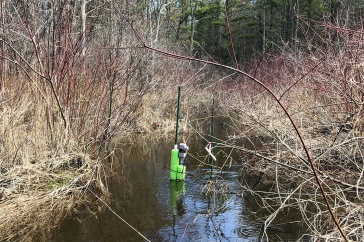
Our understanding of how life on Earth rebounded after an asteroid wiped out dinosaurs and most other species 66 million years ago took a huge leap forward recently, thanks in part to the work of professor of Earth sciences Will Clyde and Anthony Fuentes ’19G. The two analyzed and dated an extraordinary collection of fossils (16 mammal species, as well as crocodiles, turtles and fruits) discovered in Colorado in 2016 by a team from the Denver Museum of Nature & Science.
Clyde and Fuentes helped determine the age of this unprecedented find, dating the fossils to within the first million years after the mass extinction, an interval of time that is otherwise very poorly sampled globally. The findings, called “game changing,” were reported in Science and were the subject of a NOVA documentary. “We often hear about the asteroid impact and the demise of the dinosaurs, but we know much less about how ecosystems recovered after this mass extinction event,” says Clyde. “These new fossil discoveries provide a very unusual window into that period.”
-
Written By:
Beth Potier | UNH Marketing | beth.potier@unh.edu | 2-1566
















































